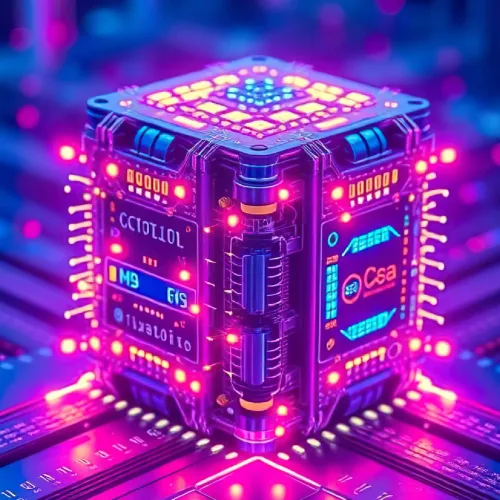The Golgi Apparatus plays a key role in cells. It is essential for protein synthesis and modification. Italian scientist Camillo Golgi discovered it in 1898. This organelle processes proteins that the endoplasmic reticulum (ER) synthesizes. Then, it prepares these proteins for their specific functions. Without the Golgi Apparatus, proteins miss critical modifications. Consequently, they cannot function properly within the cell.
How Golgi Apparatus Modifies Proteins
Once proteins are synthesized in the ER, they are transported to the Golgi Apparatus. At the Golgi Apparatus, proteins undergo several modifications. The Golgi adds carbohydrate groups to the proteins through a process called glycosylation. This modification is essential for ensuring that proteins function properly and remain stable. Additionally, the Golgi Apparatus sorts and packages these proteins into vesicles. These vesicles then deliver the proteins to their designated locations, either within or outside the cell.
Steps in Protein Modification
The Golgi apparatus modifies proteins through several processes:
- Receiving Proteins: Proteins travel from the ER to the Golgi Apparatus inside transport vesicles. These vesicles carry the proteins directly to the Golgi Apparatus. Upon arrival, the proteins are ready for further processing.
- Modification: Inside the Golgi, the organelle actively modifies these proteins. It connects carbohydrate chains, which is essential for protein functionality. Additionally, this modification step ensures that proteins acquire the features required for their roles. As a result, proteins are better equipped to perform their functions effectively.
- Sorting and Packaging: After modification, the Golgi apparatus sorts the protein into different vesicles. Each vesicle is assigned based on the destination of the protein. As a result, this sorting step guarantees that every protein comes in the right place.
- Transport: The vesicles carrying the modified proteins are sent. They travel to their specific cellular or external destinations. Subsequently, they reach their intended locations within or outside the cell.
Types of Modifications
The Golgi performs several key modifications on proteins:
- Glycosylation: This process attaches sugar molecules to proteins. As a result, it affects their stability and function. Moreover, this modification can influence how proteins interact with other molecules.
- Phosphorylation: In this process, phosphate groups are added to proteins. Consequently, this addition can change the proteins’ activity and function. Furthermore, it can modify how proteins behave within the cell.
- Sulfonating: This modification adds sulfate groups to proteins. Consequently, it impacts protein interactions and overall function. Additionally, this change can impact how proteins interact with other cellular components.
These modifications are essential because they help determine a protein’s final structure and its role within the cell. Without these changes, proteins might not function correctly, leading to various cellular problems.
Disorders Related to Golgi Dysfunction
When the Golgi Apparatus breakdown, it causes serious health issues. For instance, in I-cell disease, the Golgi fails to target enzymes correctly. Consequently, these enzymes do not reach the lysosomes as needed. As a result, cellular waste accumulates. This accumulation leads to developmental delays and other symptoms.
Uncovering Golgi mysteries
Scientists continue to study the Golgi apparatus to understand its complex functioning. Recent research has investigated how Golgi maintains its structure amid constant protein traffic. Additionally, scientists investigate how the Golgi improves after cell division. These studies aim to shed light on the treatment of Golgi-related disorders. In addition, they help improve our understanding of cellular processes.
Conclusion
The role of Golgi mechanisms in protein synthesis and modification gives us a clearer picture of how cells maintain their functionality. By processing proteins through various modifications, the Golgi apparatus ensures that the proteins can play their intended role effectively. Thus, it is indispensable for the proper functioning of organ cells and, by extension, the overall health of an organism.




